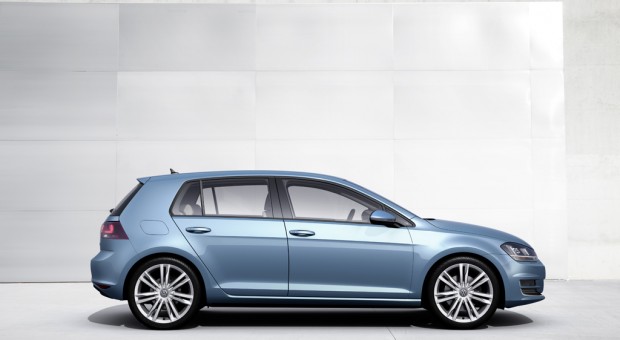
The Volkswagen Golf is one of the most iconic cars in automotive history, known for its practicality, reliability, and affordability. The Golf has been in production since 1974 and has sold over 35 million units worldwide, making it one of the best-selling cars of all time. In this article, we will take a look at the history of the VW Golf, its evolution over the years, and its impact on the automotive industry.
History of the VW Golf
The first-generation Golf was introduced in 1974 as a replacement for the Beetle. It was designed by Giorgetto Giugiaro of Italdesign, and it was intended to be a practical, fuel-efficient car that was easy to drive and maintain. The Golf was initially available as a three-door hatchback or a two-door sedan, with a range of engines that included a 1.1-liter and a 1.5-liter petrol engine, as well as a 1.5-liter diesel engine.
The Golf was an immediate success, thanks in part to its modern design, practicality, and excellent handling. It won several awards, including the European Car of the Year award in 1975, and it quickly became a best-seller in Europe.
Over the years, the Golf has undergone several revisions and upgrades, with each new generation improving upon the previous one. In 1983, the second-generation Golf was introduced, featuring a more aerodynamic design, improved safety features, and a range of new engines. The second-generation Golf was also the first Golf to feature four-wheel drive, known as the Golf Syncro.
The third-generation Golf was introduced in 1991, featuring a more rounded and aerodynamic design, as well as improved safety features and a range of new engines. The third-generation Golf was also the first Golf to be offered with a diesel engine in the United States.
The fourth-generation Golf was introduced in 1997, featuring a more refined design, improved handling, and a range of new engines. The fourth-generation Golf was also the first Golf to be offered with a six-speed manual gearbox and a dual-clutch automatic gearbox.
The fifth-generation Golf was introduced in 2003, featuring a more angular and aggressive design, as well as improved safety features and a range of new engines. The fifth-generation Golf was also the first Golf to be offered with a direct-injection engine.
The sixth-generation Golf was introduced in 2008, featuring a more refined and sophisticated design, as well as improved handling and a range of new engines. The sixth-generation Golf was also the first Golf to be offered with an electric powertrain, known as the e-Golf.
The seventh-generation Golf was introduced in 2012, featuring a more modern and sporty design, as well as improved safety features and a range of new engines. The seventh-generation Golf was also the first Golf to be offered with a plug-in hybrid powertrain, known as the Golf GTE.
The eighth-generation Golf was introduced in 2019, featuring a more streamlined and futuristic design, as well as improved safety features and a range of new engines. The eighth-generation Golf was also the first Golf to be offered with a mild hybrid powertrain, known as the Golf eTSI.
Impact of the VW Golf
The Volkswagen Golf has had a significant impact on the automotive industry, thanks in part to its practicality, reliability, and affordability. The Golf has been praised for its excellent handling, fuel efficiency, and safety features, making it a popular choice among consumers.
The Golf has also been a popular choice among enthusiasts and racing enthusiasts, thanks to its handling and performance capabilities. The Golf has competed in several racing series, including the World Rally Championship, the European Touring Car Championship, and the British Touring Car Championship
















